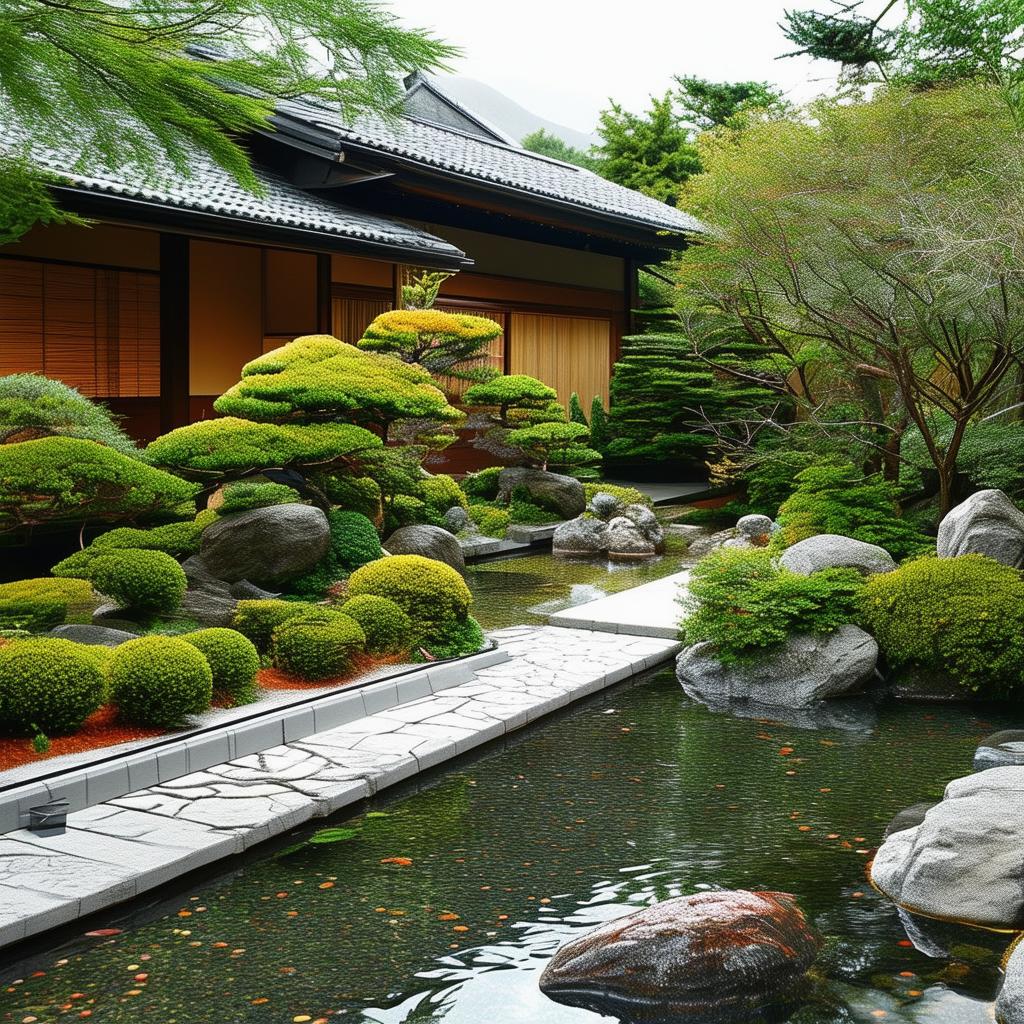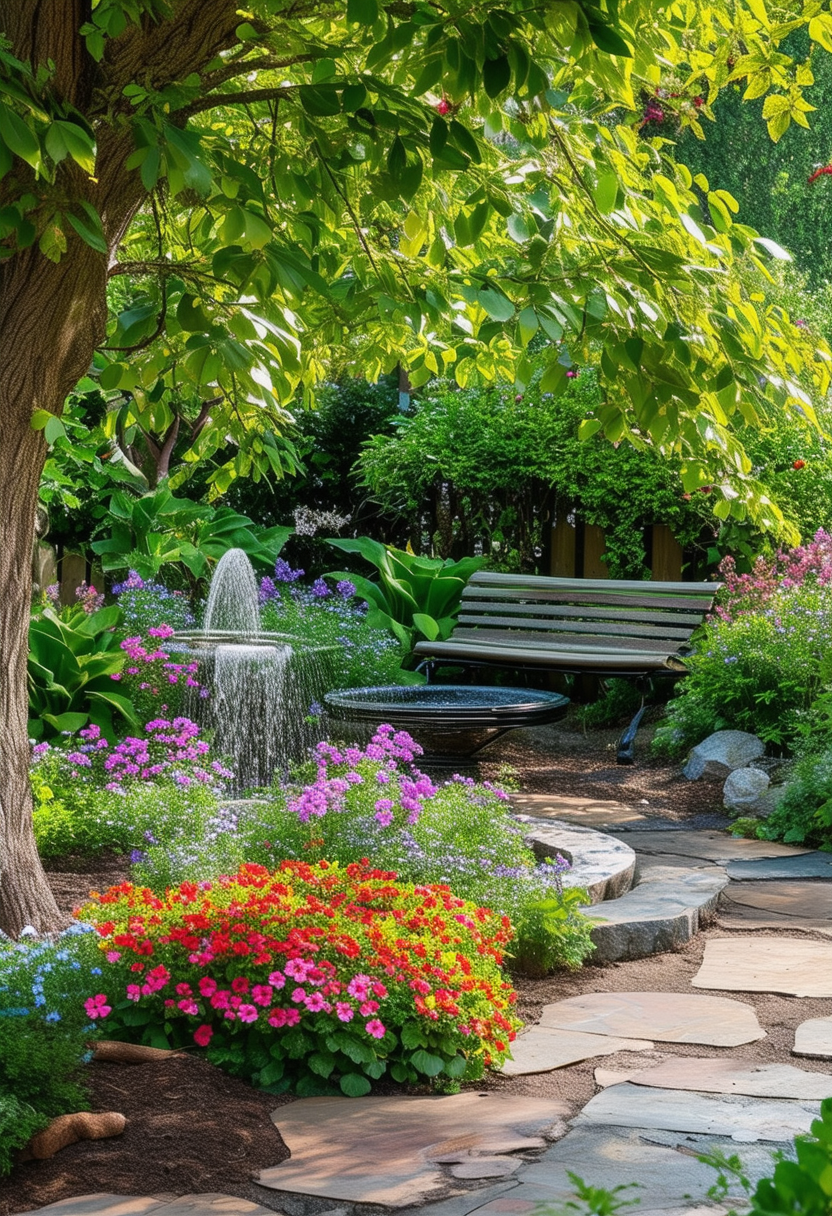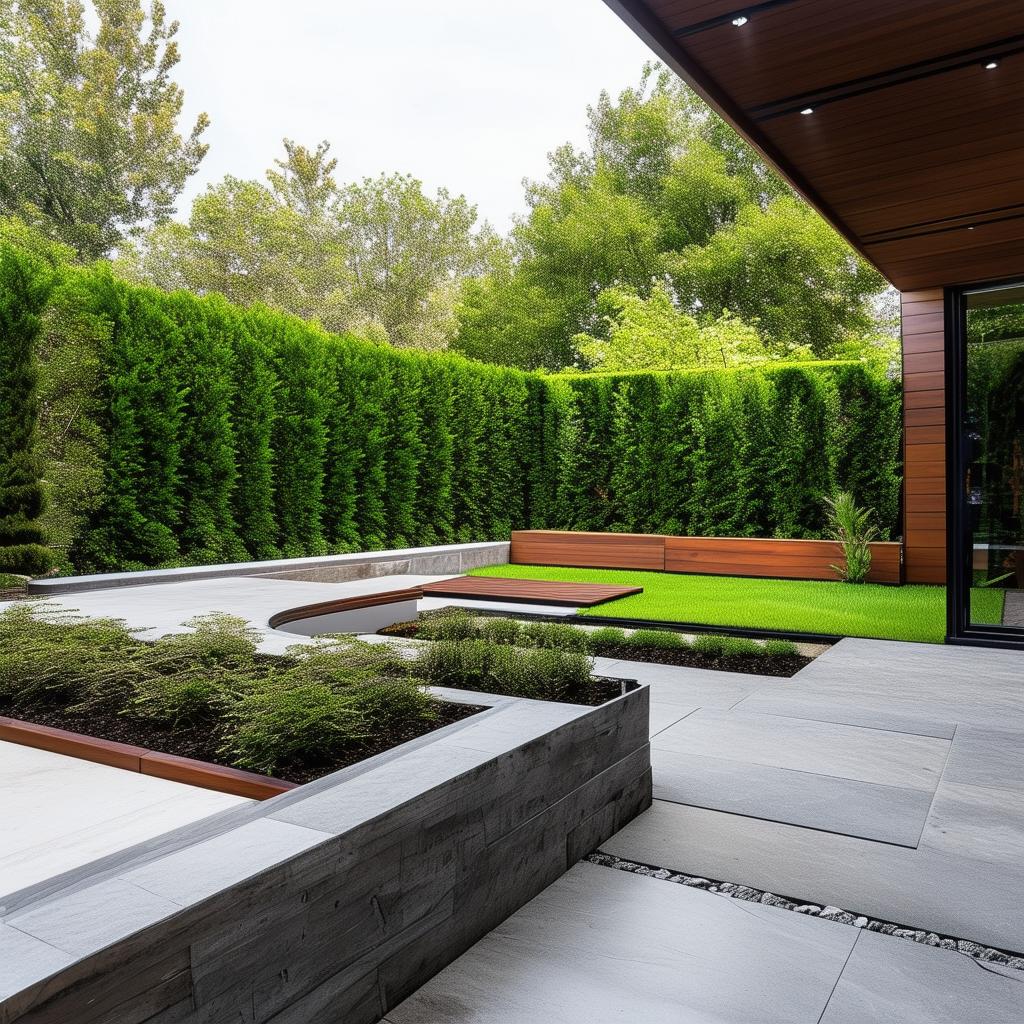When envisioning a tranquil outdoor oasis, one cannot help but be drawn to the meticulous balance and serenity of a traditional Japanese garden. With its Zen-inspired landscaping, this ancient art form transforms ordinary outdoor spaces into harmonious retreats. By incorporating elements such as carefully placed stones, flowing water features, and lush greenery, you can bring a touch of Japan to your own backyard. Discover how to infuse your outdoor space with the peaceful beauty of Japanese gardens in this guide to Zen-inspired landscaping.
Creating Tranquility with Water Features
Transform your outdoor space into a tranquil oasis with the calming presence of Japanese garden elements. By incorporating zen-inspired landscaping techniques, you can create a serene environment that promotes relaxation and mindfulness. Water features play a key role in achieving this peaceful ambiance, adding a sense of natural beauty and tranquility to your backyard.
One popular Japanese garden element to consider is a koi pond. These serene water features not only provide a habitat for colorful koi fish but also create a reflective surface that adds a sense of depth to your outdoor space. The gentle sound of water trickling into the pond can help drown out noise from the outside world, allowing you to fully immerse yourself in the peacefulness of your garden.
In addition to koi ponds, Japanese waterfalls are another beautiful way to incorporate water features into your outdoor space. The sight and sound of water cascading over rocks can create a sense of harmony and balance, enhancing the overall tranquility of your garden. Whether you choose a small cascading waterfall or a larger, more dramatic feature, this element will surely bring a touch of zen to your landscaping design.
Incorporating Natural Materials for Balance
Japanese gardens are known for their peaceful and harmonious design, incorporating natural materials to create a sense of balance and tranquility. One key element often seen in these gardens is the use of stone. From smooth pebbles to large boulders, stones are strategically placed to symbolize islands, mountains, or even animals, adding a sense of movement and life to the landscape.
Bamboo is another iconic material commonly found in Japanese gardens. Its tall, slender stalks can create vertical interest and provide a soothing rustling sound when the wind blows through them. Bamboo fences, gates, and even water features can be incorporated to enhance the overall Zen-inspired atmosphere of your outdoor space.
| Material | Symbolism |
|---|---|
| Water | Flow of energy and life |
| Moss | Peace and tranquility |
| Gravel | Ripples in a pond or river |
Wood is also a crucial element in Japanese garden design, as it represents the connection between humans and nature. Wooden bridges, lanterns, and benches can be used to create focal points and invite visitors to pause and appreciate the beauty of the garden. By incorporating these natural materials mindfully, you can create a serene outdoor space that promotes relaxation and mindfulness.
Designing a Path to Serenity
Transform your outdoor space into a serene oasis with the principles of Zen-inspired landscaping. By incorporating traditional Japanese garden elements, you can create a tranquil and harmonious environment that promotes relaxation and mindfulness.
One key element of Japanese garden design is the use of natural materials such as rocks, gravel, and bamboo. Rocks are often used to represent mountains, while gravel can symbolize water or the ocean. Bamboo, with its graceful and versatile qualities, can be used to create privacy screens or add a touch of elegance to your garden space.
In addition to natural materials, the layout of your outdoor space plays a crucial role in creating a sense of calm and balance. Symmetry and balance are essential principles in Japanese garden design, with carefully placed elements creating a harmonious flow throughout the space. Consider incorporating elements such as water features, stone lanterns, and Torii gates to enhance the overall atmosphere of tranquility in your garden.
In Summary
Incorporating elements of Zen-inspired landscaping into your outdoor space can help create a peaceful and serene atmosphere that promotes relaxation and mindfulness. By utilizing traditional Japanese garden elements such as rocks, water features, and lush greenery, you can transform your backyard into a sanctuary that invites tranquility and contemplation. Whether you choose to add a koi pond, meditation area, or bamboo grove, the possibilities for creating a harmonious space inspired by the principles of Zen are endless. So go ahead and start planning your own Japanese garden oasis today, and watch as your outdoor space becomes a place of peace and beauty for you to enjoy.


